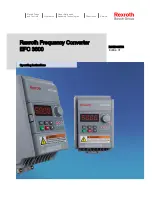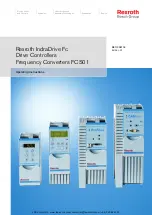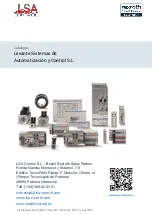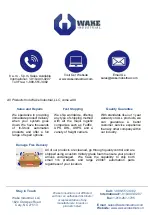
3-32
3.12 Inverter Wiring
Wiring Precautions
Danger
!
Do
NOT
remove any protective covers or attempt any wiring while input power is
applied. Connect all wiring before applying input power. When making wiring
changes after power up, remove input power and wait a minimum of five minutes
after power has been turned off before starting. Also confirm that the charge
lamp is off and that DC voltage between terminals B1/P or (+) and (-) does not
exceed 25V, otherwise
electric shock may result.
Only authorized personnel should work on the equipment. (Take off metal
jewelry such as watches and rings and use insulated tools.), otherwise
electric
shock or injury may result.
(A)
Power input terminals
1.
The Input power supply voltage can be connected in any phase sequence to power input terminals R/L1,
S/L2, or T/L3 on the terminal block.
2.
DO NOT connect the AC input power source to the output terminals U/T1, V/T2 and. W/T3.
3.
Connect the output terminals U/T1, V/T2, W/T3 to motor lead wires U/T1, V/T2, and W/T3, respectively.
4.
Check that the motor rotates forward with the forward run source. If it does not, swap any 2 of the output
cables to change motor direction.
5.
DO NOT connect phase correcting capacitors or LC/RC noise filter to the output circuit.
(B)
Grounding
1.
Connect the ground terminal (E) to ground having a resistance of less than 100Ω.
2.
Do not share the ground wire with other devices, such as welding machines or power tools.
3.
Always use a ground wire that complies with the local codes and standards for electrical equipment and
minimize the length of ground wire.
4.
When using more than one inverter, be careful not to loop the ground wire, as shown below in Fig. 3.12.1.
A510
A510
A510
A510
A510
A510
a) Correct
b) Correct
A510
A510
A510
c) Incorrect
Loop
Fig. 3.12.1 Inverter Grounding
















































